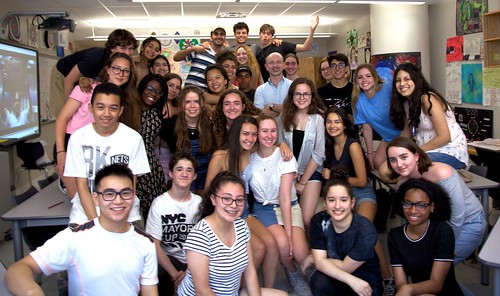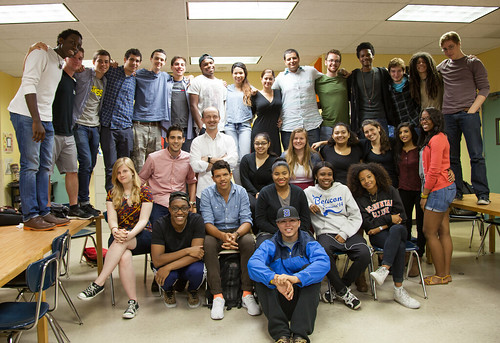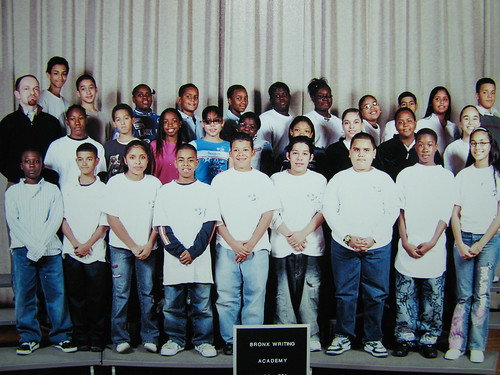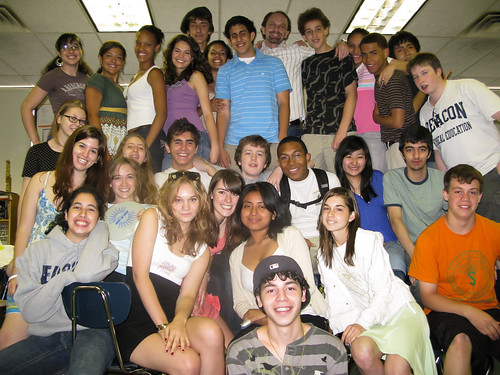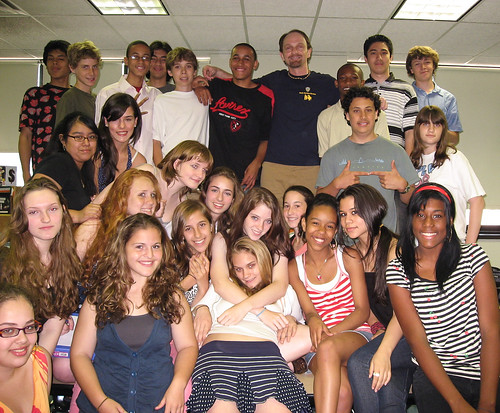Russian industrialization greatly affected Leo Tolstoy’s views on modern society, causing him to reject the society to which he once belonged. This blatant rejection of bourgeois society is illustrated throughout The Death Of Ivan Ilyich through Tolstoy’s skillful use of devices. The devices are utilized to make the superficiality of this society evident. The devices consist of narrative, theme, and juxtaposition which all contribute to Tolstoy’s existential disdain. The juxtaposition of Gerasim to the Russian bourgeois society, the unenthused narrative, and the focus on materialistic pursuits, all illuminate Tolstoy’s disdain for mass-man’s loss of humanity in an emotionally detached society. [Read more…]
Siddhartha and The Alchemist Comparative Essay by J.F.
The Significance of Love and Wealth on Human Fulfillment
In their early teenage lives, both Hermann Hesse and Paulo Coelho struggled to cope with their parent’s conflicting outlook on their lives and ultimately, their purpose. For separate reasons, Hesse and Coelho spent time in institutions designed to “reinvent” the individual. The authors endured many months in this compulsory prison yet after release, proved their individuality and perseverance was more than a product of teen angst– they pursued their aspirations. Moreover, Hesse and Coelho’s persistence through a childhood polluted by parental control yet followed by complete success, demonstrates not only the genuine existence of destiny, but also the continuous opportunity to achieve happiness and greatness. Exemplified by the stories of their lives, Hesse and Coelho channel this idea in their works Siddhartha and The Alchemist. Using the wisdom the protagonists obtained from personal journeys, both Hesse and Coelho convey the importance of sacrificing love and common human pleasures to become entirely fulfilled. However, only Coelho advocates an ultimate return to such pleasures suggesting that love and possessions are essential in a truly authentic life. [Read more…]
Steppenwolf Essay Process by CE
On the Vanity of Existence – Schopenhauer
“The scenes of our life resemble pictures in rough mosaic; they are ineffective from close up, and have to be viewed from a distance if they are to seem beautiful.” (This would work very well with an analysis of the garden metaphor in the treatise and then its extrapolation throughout the novel.)
- Haller sees nothing beautiful in life, but as time goes on he’s constantly looking back to his childhood where he wishes he could have been a part of the comfort that the bourgeois provided.
- When he’s in the magic theater, the man shows him that he can rearrange his life into any form he wants if he’s not content with it. It was only when Haller physically saw his life being molded into different forms did he realize how much power he had to make his life beautiful.
- Maria and Hermine are two women who helped him begin to see all of the beauty in life. [Read more…]
Steppenwolf Outline by EMJ
Introduction:
- Background on Sartre’s idea of bad faith, nothingness and the pain from one’s inner conflict
- Explain Schopenhauer’s idea of the inevitability of pain with knowledge
- Introduce the connection between Sartre and Schopenhauer’s idea; the inner conflict that one feels due to bad faith is what the ‘thinker’ indulges in, causing them to feel pain and suffering
- Influence of Schopenhauer and Sartre on Harry Haller’s journey with Hermine throughout the book and his necessity of returning to a childhood state in order to survive his reality
Thesis: Through Harry Haller’s transformation with Hermine, merged with Sartre’s philosophy of bad faith and Schopenhauer’s idea that with knowledge pain is inevitable, Hermann Hesse proves that man must return to a childlike state in order to enjoy the pleasures of life and survive reality. [Read more…]
Steppenwolf PBA Essay by GG
In the modern era, the functional capacity of individuals within larger organizations has risen to unparalleled importance and the development of functionality has violently relegated the individual’s spiritual development. Hermann Hesse’s Steppenwolf illustrates the psychological damage modern organization inflicts upon complex beings and follows one man’s journey to heal his shattered soul. Along with Hesse, Søren Kierkegaard and Carl Jung also resist modern paradigms by illuminating the ways individuals can preserve and develop the many souls that exist within them, despite modern dehumanization. Kierkegaard discusses how defining oneself within the context of a larger organization fragments individuality, and argues that a subjective relationship to the self and one’s spirituality creates a truthful individual. Jung’s discussion of our shared unconscious shows the true depth of our inner beings and brings to light the severe dehumanization modern views of individuality produce. [Read more…]



